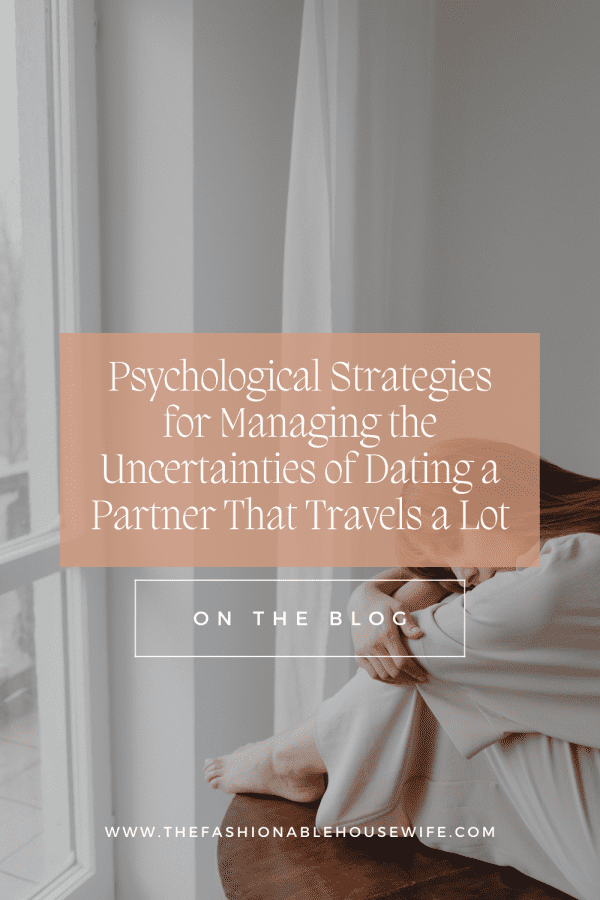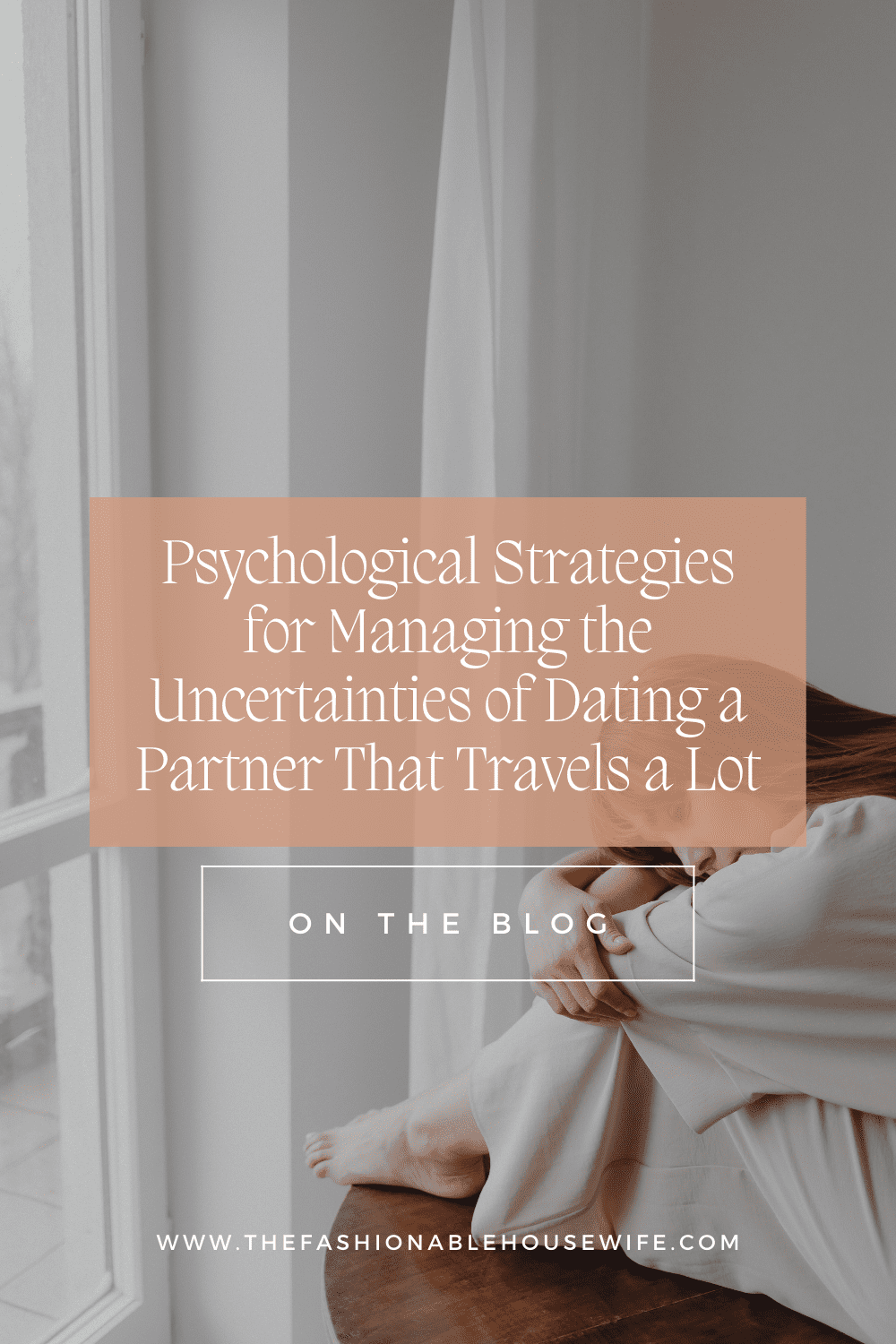Psychological Strategies for Managing the Uncertainties of Dating a Partner That Travels a Lot

Communication’s Role in Relationship Stability
Communication remains fundamental in maintaining relationship stability when one partner frequently travels. Establishing consistent communication routines forms the basis of these strategies. Open and honest discussions about feelings, expectations, and concerns result in stronger relational bonds. Allocating specific times for check-ins, such as daily phone calls or weekly video chats, enhances this connection. Research finds that couples engaging in regular communication report greater satisfaction and strength in their relationships. Establishing these routines requires mutual effort and dedication, ensuring both partners feel valued and heard.
Rituals and routines contribute significantly to the relational dynamic when dealing with travel. Developing specific rituals, such as a special goodbye routine or the tradition of bringing home a small gift from each trip, introduces elements of stability and comfort. These rituals foster a sense of normalcy and continuity. Studies indicate that couples adhering to such rituals experience less anxiety and report higher relational satisfaction. Implementing these routines does not demand grandeur but a consistent effort to maintain relational equilibrium.
Regular communication and established rituals facilitate relational stability. Yet, it is equally critical to delineate individual boundaries and personal interests. This approach mitigates over-reliance on the traveling partner for emotional fulfillment and companionship. Engaging in hobbies, pursuing personal passions, and maintaining a robust social life independently strengthen individual well-being. Such practices are shown to improve self-esteem and emotional resilience, indirectly reinforcing the relational bond.
Balancing Individual and Communal Interests
Maintaining interests outside the relationship holds paramount importance. This approach ensures individual autonomy and prevents emotional dependency. Pursuing personal hobbies and spending time with friends helps foster a well-rounded personality. Studies suggest that individuals who engage in personal interests exhibit higher levels of personal satisfaction and relationship stability. Establishing a balance between communal and individual activities strengthens the relational dynamic, fostering a healthier enjoyment of shared time together.
Jealousy management forms an integral part of handling relational uncertainties. Jealousy, while common, needs careful navigation to prevent relational discord. Avoiding behaviors such as snooping through your partner’s phone or social media safeguards relational trust. Studies show that such actions often lead to mistrust and further relational issues. Instead, focusing on building self-confidence and self-esteem remains pivotal. Professionals recommend this approach, emphasizing the importance of personal emotional health in sustaining a healthy relationship.
Encouraging your partner to share their travel experiences with you further supports the relational dynamic. This proactive involvement allows a connection even during physical absence. Viewing the partner’s travel as an opportunity to learn about new places and cultures, even if vicariously, promotes a sense of connection. For those with partners who travel frequently, maintaining a connection can be challenging yet rewarding. In this context, it’s essential to define what you seek in a relationship. For example, if you aim to, for example, meet a sugar daddy online, websites dedicated to such arrangements can offer connections that accommodate and understand the unique dynamics of dating someone who is often away. This clarity ensures that you meet individuals who are comfortable with and supportive of a lifestyle marked by travel.
Managing Emotional Challenges
Managing the emotional challenges tied to a traveling partner involves structured strategies. Seeking support from friends and family remains crucial. Surrounding oneself with understanding and supportive individuals provides a buffer against the emotional strain of frequent absences. Discussions with trusted loved ones offer an outlet for expressing feelings, reducing the feeling of isolation. Research supports the notion that a strong social support network significantly contributes to individual emotional well-being and relational stability.
Professional support can additionally prove beneficial. Engaging with a therapist or counselor may assist in developing coping strategies for anxiety, depression, or other mental health issues related to the partner’s travel. Therapeutic interventions provide structured methodologies for managing emotional responses and improving overall well-being. Research indicates that individuals who pursue professional help report higher satisfaction and emotional resilience in managing relational uncertainties. Mental health professionals emphasize a tailored therapeutic approach to address specific relational dynamics and individual needs.
Finally, integrating positive aspects of the partner’s travel experiences into the relationship dynamic contributes to maintaining a positive outlook. Viewing the absences as opportunities for personal growth or as moments to strengthen emotional resilience supports a healthy relationship framework. Couples reporting shared excitement about the traveling partner’s experiences often show enhanced relational satisfaction. This approach encourages mutual support and shared enthusiasm in discussing and reflecting upon the travel experiences, fostering a deeper connection.
Structured Approaches for Sustainable Relationships
A structured approach encompassing communication, personal interests, jealousy management, and both communal and individual support provides a comprehensive strategy for managing the uncertainties of dating a frequently traveling partner. Regular, honest communication ensures both partners feel connected and valued. Personal hobbies and interests reinforce individual autonomy and relational satisfaction. Healthy jealousy management prevents relational discord, while active involvement with the traveling partner’s experiences fosters a deeper connection. Support from friends, family, and professionals round out this structured approach, ensuring emotional well-being and relational stability.
By adhering to these structured strategies, relationships involving a frequently traveling partner can maintain stability and strength. Couples incorporating communication routines, personal interests, and positive management of jealousy exhibit higher satisfaction and resilience. Supportive networks of friends, family, and professionals further bolster these relationships. Through these specific strategies, couples can effectively manage the uncertainties of dating a partner who travels frequently, ensuring a balanced and satisfying relationship dynamic.

